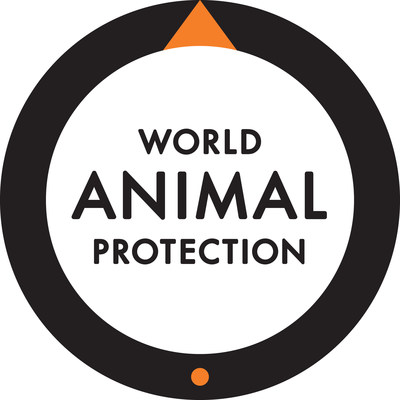World Animal Protection calls on PetSmart® to end the sale of exotic pets
NEW YORK, Jan. 19, 2021 /PRNewswire/ -- World Animal Protection, a global animal welfare non-profit is, today, launching a campaign urging PetSmart® to end the sale of reptiles and amphibians. The group notes that the sale of wild animals poses a risk to both animal welfare and public health. Whether these animals, including snakes and lizards, are captured from the wild or bred in captivity, they suffer immensely. Many die prematurely, including in transit to their destination. If they do make it to their destination, these animals are kept in inadequate environments which can lead to physical and psychological issues and many die in their first year as a pet in people's homes.
Reptiles and amphibians are extremely complex with behaviors and needs that cannot be met in captivity.
According to a World Animal Protection survey, there are currently 9 million American households that own an exotic pet, and approximately 17.6 million exotic pets nationwide, a number that will only continue to rise without further public education. Many people do not realize what constitutes an exotic pet - 38% of exotic pet owners do not consider any of their pets to be exotic - and are unaware of the suffering that these creatures endure in captivity. Among exotic pet owners, the most popular types of exotic pets are reptiles, constituting 51% of all exotic pets in the US.
Ben Williamson, Programs Director, World Animal Protection, US says:
"Reptiles are known as vectors of zoonotic diseases which pass from animals to humans?and diseases don't distinguish between the legal or illegal trade. The Centers for Disease Control and Prevention holds reptiles responsible for thousands of Salmonellosis outbreaks every year, many of which hospitalize people. Households with children under five are specifically warned against keeping reptiles. Yet worryingly, PetSmart continues to sell these animals to consumers, many of whom are families."
"PetSmart no longer sells dogs or cats, instead it dedicates space in its stores to house animals from local rescue groups. The irony is that unlike cats and dogs, who have been domesticated over thousands of years, reptiles and amphibians have not evolved to make good pets. In captivity, reptiles can suffer from acute stress, chronic debilitation, and other medical problems such as calcium deficiency and metabolic bone disease. Their ability to explore, properly regulate body temperature, and eat natural and balanced diets is severely compromised.
Yet PetSmart fails to take measures to prevent reptiles from being sold. Instead they are labeled as "easy to handle" and a "perfect choice for beginners" and willingly sold to first-time buyers.
World Animal Protection encourages people to speak out about their concerns and sign our petition calling on PetSmart to put an end to the sale reptiles and amphibians.
Learn more here.
For further information, please contact:
Jeanne Turkheimer
[email protected]
SOURCE World Animal Protection
News published on and distributed by:




